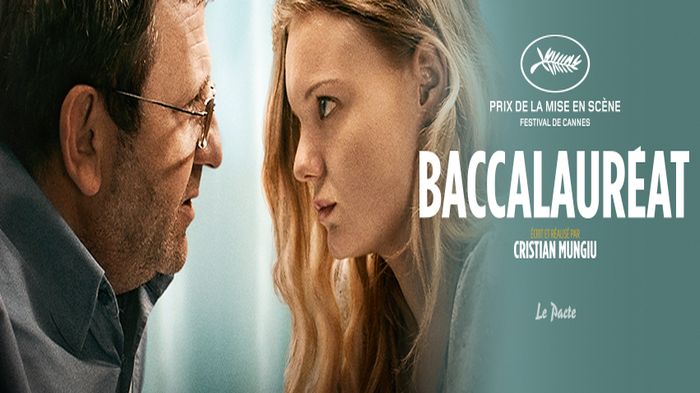Synopsis: Romeo, a doctor in a small town in Transylvania, has done everything in his power to ensure that his daughter, Eliza, is accepted into an English university. All that remains for the young girl, who is an excellent student, is a formality that should not pose a problem: obtaining her baccalaureate. But when Eliza is attacked, the precious diploma suddenly seems out of reach. With it, Romeo’s entire life is called into question as he forgets all the principles he instilled in his daughter, wavering between compromises and complicity…
Cristian Mungiu’s screenplay weaves together some of his usual themes: today’s Romania through a lens of social criticism. The topic of the baccalaureate allows for the collision of different perspectives, including Romeo’s frustration as a doctor and a father convinced there is no future left in Romania, despite his belief in better days upon returning to Romania in 1991.
It seems that every Romanian’s goal is to create a sense of indebtedness in others. Everyone renders “services” for one another; it’s impossible to live without them… Unlike his wife, for whom the words “duty” and “honor” still hold significance, Romeo is no longer the idealist he once was. His hopes for brighter tomorrows didn’t survive the Ceausescu era, the pervasive fear, and the constant poverty. Nor, perhaps, his own mediocrity.
This irrepressible desire for redemption gradually transforms into guilt. This doesn’t prevent him from falling unsuspectingly into dubious schemes that risk harming both his daughter and what remains of his family.
To help his daughter, Romeo asks for “services” from various people. In exchange for a brand-new liver, an influential man promises to intervene with a big shot who can bribe the examiners… Romeo agrees, rushing in blindly without seeing the trap that, inevitably, closes on him.
Romeo personifies contemporary Romania, damaged and disillusioned.
Cristian Mungiu’s message is clear, though not necessarily disenchanted: after exposing the vices (corruption) and shortcomings (anxieties) of his country, he demonstrates how the future now belongs to the youth. With its Ceausescu-era spy replicas turned do-gooders, its dying old apparatchiks, and its youngsters determined to change the face of Romania, “Baccalaureate” hits the mark.
Cristian Mungiu remains brilliant till the end. He is in perfect harmony with his actor, Adrian Titieni, who is astonishing in his self-deprecation, reminiscent of Ugo Tognazzi or Alberto Sordi.


